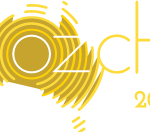Overal Project Goals
According the Government of Western Australia, 97% of businesses are classified as small, with a share of 25% as micro (1-4 staff) and 10% small (5-19 staff), in numbers, 78.000 companies employ between 1-19 staff members. These combined contribute to 40 bn to the economy, and 20% to the gross state product (see [here]). In contrast to large scale corporations, SMEs require students with broader skill sets and graduate attributes than larger scale corporations. Due to mostly limited available resources, for these companies it is rather hard to collaborate with universities in teaching and research. To overcome this shortcoming, CuCo.Create (C3) aims to identify a model to co-create with SMEs and integrate these into a teaching environment to gain access to future employees, the creative talent of students, or which help them to become entrepreneurs.

The project has three primary goals:
- the importance of making students ready for SMEs or self-employment;
- necessity of developing soft-skills and employability attributes;
- innovative approaches in cross-disciplinary work.
On this website you can find methods and techniques about how to train students in industry skills, and soft skills. The information is based on the Curtin internal research grant CuCoCreate (Curtin Co-Create) undertaken by the VisLab at Curtin University.
List of All Methods
- Design Thinking
- Game Storming
- …
Method Type
- Curriculum Wide
- Single Exercise / Tutorial
- Full Day / Blocked
Resource Requirements
- Low
- Medium
- High
Soft Skills/Employability Attributes Addressed
- Resilience
- Communication
- …
The goal of the project is to train students in broad skills to make them ready for SME applicability and self-entrepreneurship by 1) developing teaching methods to cover these soft/employability skills; 2) creation of a model framework for similar kinds of undertakings of Curtin university; 3) establishing a Curtin wide expert group.
List of Methods
Method (e.g. Design Thinking)
Summary
…
Description
…
Strength
…
Weakness
…
References
…
Suitability
Type: Curriculum Wide, Single Exercise/Tutorial, Full Day/Blocked
Soft Skills: Employability Attributes Addressed: Communication, Resilience, ….
Main Learing Outcome: …
Marking/Grading: …
Resource Requrements: Low, Medium, High

